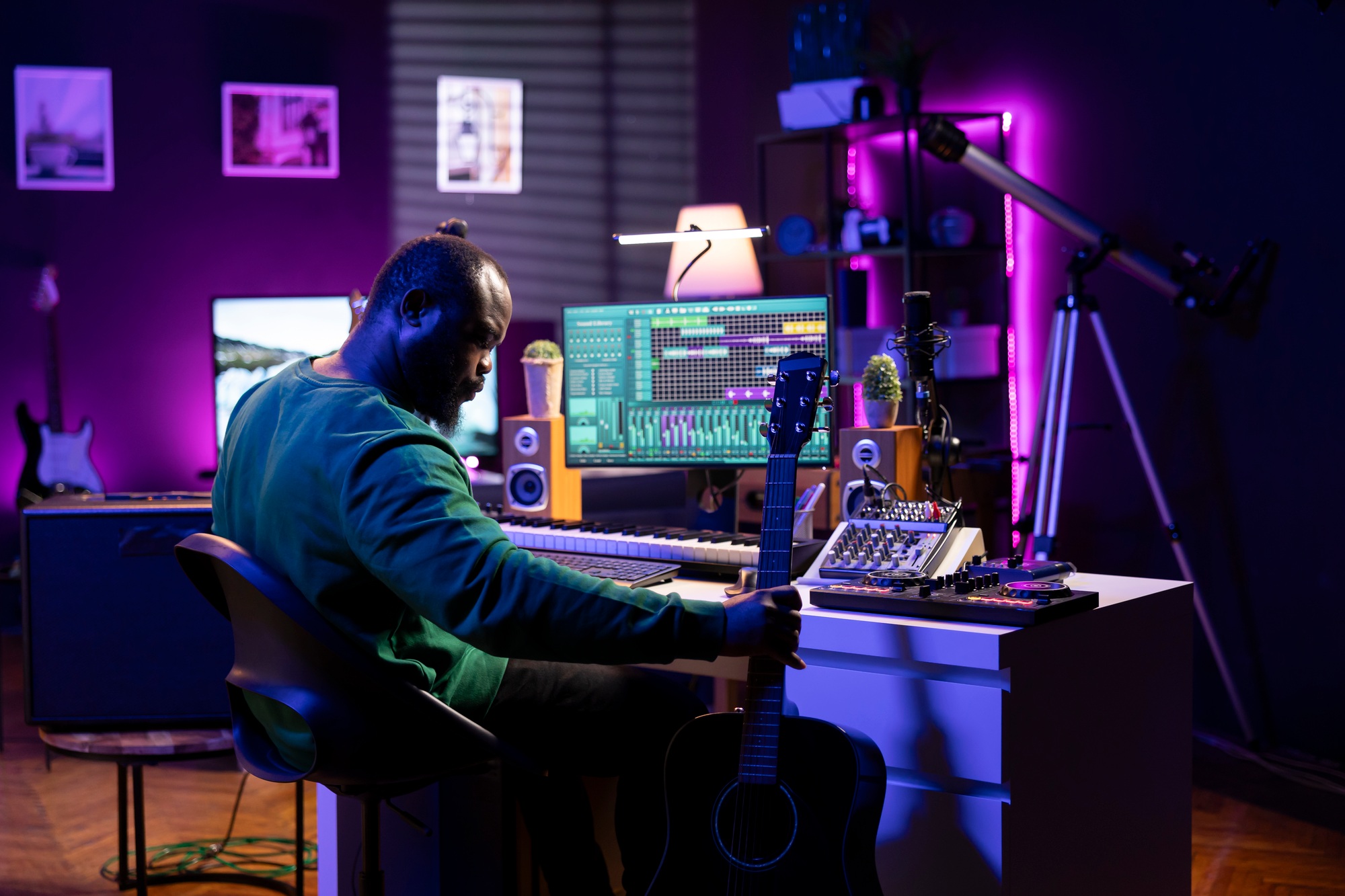Generative AI is making waves in the music industry, creating opportunities but also raising challenges for human musicians. While AI tools can produce tracks quickly and cheaply, they’re also threatening the incomes of music creators. Reports suggest that musicians could lose up to 25% of their income as AI-generated songs become mainstream. Let’s explore what’s happening, why it matters, and how musicians can adapt to this new era.

What is Generative AI in Music?
Generative AI uses advanced technology to create music by learning from existing tracks. It studies patterns in melodies, rhythms, and harmonies, then generates entirely new compositions. For instance, tools from companies like OpenAI and Google can mimic the style of popular artists or produce original soundtracks for videos and games.
This technology can create music faster and at a fraction of the cost of hiring a human composer, making it popular with businesses. But this convenience comes at a cost to musicians.
How AI is Disrupting the Music Industry
- Fewer Jobs, Less Income
Generative AI is replacing musicians in areas like advertising, gaming, and streaming platforms. Companies now prefer AI tools because they’re cheaper and faster, cutting opportunities for musicians to earn through licensing and royalties. - Oversaturation of Music
AI can create thousands of songs in minutes, flooding platforms like Spotify and YouTube. This makes it harder for independent and emerging artists to stand out in an overcrowded market. - Originality vs. Automation
AI models are trained on existing songs, which can lead to unintentional copying of styles or patterns. This raises questions about intellectual property and whether AI-generated music can ever truly be considered original.
What Can Be Done to Support Musicians?
As the music industry embraces AI, there are steps that can protect and empower musicians:
- Stronger Copyright Protections: Governments are exploring new laws to ensure AI tools can’t use copyrighted music without permission, giving musicians more control over their work.
- Revenue Sharing Models: Platforms using AI-generated music could share profits with the artists whose work inspired the AI.
- Transparency for Listeners: Labels indicating whether a song is AI-generated or human-made can help listeners make informed choices about what to support.

FAQs About Generative AI and Music
1. What’s the difference between AI and human-made music?
AI-generated music is based on patterns from existing songs, but it often lacks the emotional depth and creativity of human compositions. It’s like comparing a hand-painted masterpiece to a digital design—both have value, but they serve different purposes.
2. Can musicians stop AI from using their songs?
In some regions, new laws are being proposed to require AI developers to get permission before using copyrighted music. Musicians can also use tools to block unauthorized use of their work.
3. Will AI replace human musicians?
AI is unlikely to fully replace human musicians. While it’s great for creating background music or jingles, many people still value the authenticity and emotional connection that only human creators can bring.
Final Thoughts
This new wave of generative AI is transforming the music industry, offering innovative tools but also challenging the traditional role of musicians. By embracing AI responsibly and supporting creators, the industry can strike a balance that benefits everyone. Whether you’re a musician or a fan, this is a moment to rethink what makes music truly special—and how we can preserve that in a tech-driven world.
Sources Forbes


